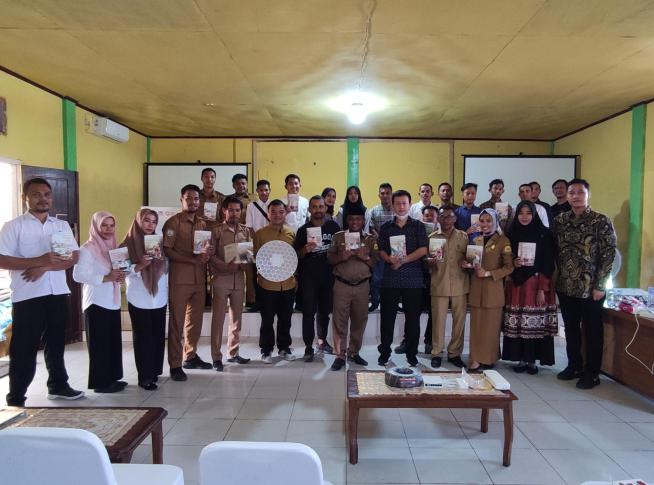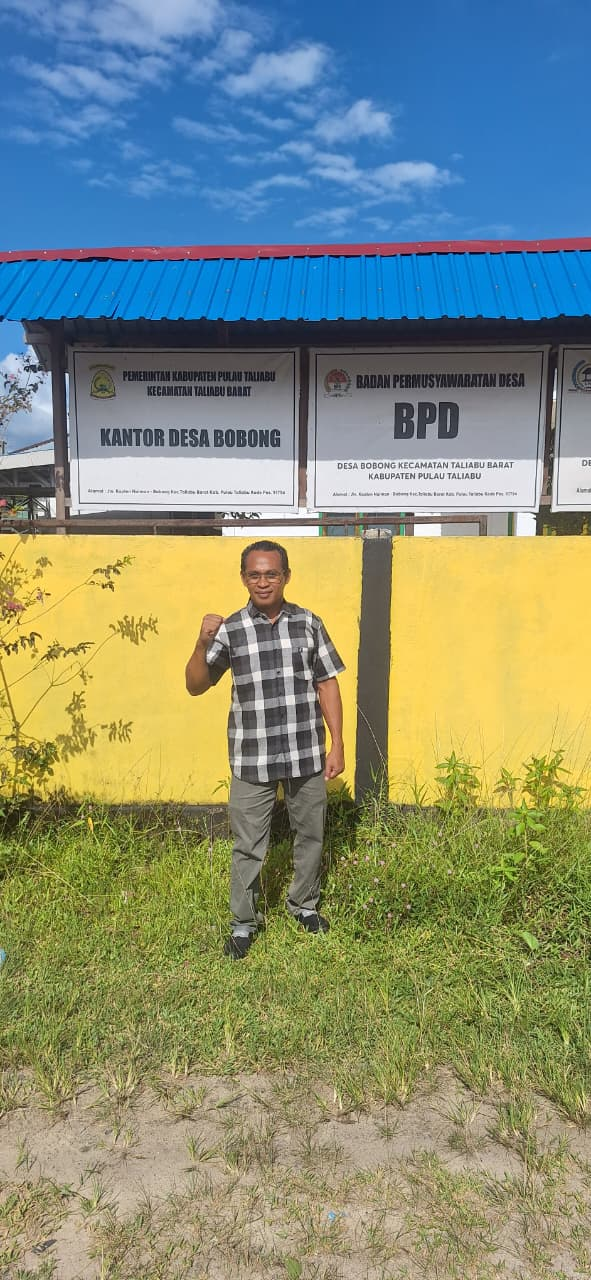
Pulau Taliabu, located in eastern Indonesia, is a remote island with its own logistical challenges. Residents usually travel via the Sulawesi Tengah (Luwuk) province as the main gateway to reach other parts of the country. Internet access used to be another obstacle. For years, connectivity depended on limited options that were not yet affordable or reliable enough for most households.
However, in late 2024, something new began in Bobong, the capital of Taliabu. Instead of waiting for big companies or government projects, the community built their own internet service. It achieved this through a village owned enterprise (BUMDes), taking a step not only towards connectivity, but also towards self-reliance.

A village takes charge
In 2023, the Common Room Network Foundation initiated the Sekolah Internet Komunitas (SIK) programme in Taliabu, opening the door for local residents to learn how to build and manage their own internet infrastructure. “Alhamdulillah, we felt supported,” said acting village head Nasrun Mustafa, noting the strong encouragement which Common Room provided to his community. He credited the programme with giving residents the confidence and skills to take the first step toward independence.
This effort was also possible thanks to support from the central government. Guidance and resources from ministries, such as Kemendes (Ministry of Village) and Komdigi (Ministry of Communication and Digital Affairs), were essential to getting the initiative off the ground. As Nasrun explained, “Without funding from the central government, we could not have started.”

Standing outside the Bobong Village office, acting village head Nasrun Mustafa reflects on the role of the community in building internet self-reliance
That same year, BUMDes (a village-owned enterprise) Sejahtera Mandiri Bobong was created. Using Rp 254 million (approximately USD 15,000) from village funds and partnering with PT Dewata Solusi Teknologi (DewataNet), a regional internet service provider based in Palu, the village began to design its own network. As required by regulation, the BUMDes partnered with a licensed ISP to supply upstream internet connectivity, and DewataNet, the closest available provider, delivered the upstream link and handled system activation support. Local youth joined training sessions, most had no IT background but learned directly in the field.
One of them, Asrulin Kabaena, now head of the internet unit, recalled: “I joined in December 2024, right when the project started. I also work as a technician. We learned by climbing poles, pulling cables, connecting ONTs to houses. No theory, just practice. Sometimes, even at dawn, if there is a problem, we fix it. That is how we earn people’s trust.”
From connection to independence
By December 2024, the first connections were live. The BUMDes offered three packages: 10 Mbps for Rp 250,000 (USD 14) per month; 20 Mbps for Rp 300,000 (USD 17) and 30 Mbps for Rp 350,000 (USD 20). Every household paid a one-time installation fee of Rp 150,000 (USD 8).
The demand was immediate. Within weeks, more than 100 households and offices subscribed. “We started with nothing, and suddenly we had over a hundred customers,” said Jun Yatim Mustafa, the BUMDes treasurer. “Every month we collect around Rp 27 million (approximately USD 1,600). From this, we cover the bandwidth cost of about Rp 10 million (approximately USD 590) and share revenue with our partner. What is left, we put back into service.”
For many, this new service meant more than affordable internet. It reduced dependence on external providers and gave the community greater control. “In the past, support could take days. Now, if there is a cable problem, our technicians respond immediately. That is real independence,” Jun said.
Lives transformed
The changes were visible across Bobong. Families no longer had to gather in public spaces searching for signals. “Before, my children always went out at night looking for Wi-Fi,” said one mother. “Now, they can stay home to study, although sometimes they just play Mobile Legends,” she added with a laugh.
Small businesses also began to benefit. Sellers used WhatsApp and social media to reach new customers. Government offices, which once struggled with unstable connections, could finally rely on the BUMDes service to perform their duties.
Just as important, the village government itself became less dependent on delayed APBDes transfers – Indonesia’s Village Budget (Anggaran Pendapatan dan Belanja Desa), the main source of government funding for village development. “This internet is not just about browsing,” the village head said. “It makes our village stronger. We can fund small projects and solve problems without always waiting for outside help.”
Challenges along the way
The road has not been without difficulties. The BUMDes still depend on DewataNet’s headquarters in Palu for system activation and troubleshooting. “Sometimes we can climb the poles and connect the cables, but the final switch is still pressed in Palu,” said Asrulin. “We are learning, but step by step.”
Financially, the BUMDes must balance monthly expenses with reinvestment, and staff often put community service above their own pay. As Jun noted, “Even if we delay our own salaries, we make sure the network runs.”
Local government support has also been important. The Pemda Taliabu has maintained good communication and provided facilities such as solar-powered streetlight poles that can be used to carry fibre cables. “They always coordinate with us and support the programme,” one villager said.
There are also social risks. Children spend more time gaming, and the spread of harmful online content has raised concerns. A previous case of private videos going viral in Bobong is a reminder of the dangers that come with connectivity. To address these risks, the community is preparing digital literacy sessions involving youth, teachers and parents, so that the internet can be used more for education, business and community building.
The next chapter: Self-reliance at scale
For 2025, Bobong has set its sights higher. The village plans to reinvest 20% of its Dana Desa (about Rp 170 million, USD 590) into expanding the network. “Every day people call us asking for Wi-Fi,” said the village head. “We hope to double our subscribers this year.”
For the people of Bobong, their internet is more than a tool. It is proof that even in one of Indonesia’s most remote islands, a community can take charge of its own future. As Asrulin put it: “This internet is not only for today. It is for our children. We built it ourselves, and we will keep building it.”
This story is part of a broader community-centred connectivity initiative (CCCI), where villages across Indonesia and beyond are proving that connectivity can be built not just for access, but as a form of self-reliance, with collaboration from civil society, private partners and both central and local government.
Akhmat Safrudin is a member of the Institute for Social Entrepreneurship in Asia (ISEA), an APC member organisation, and also works with Indonesia-based Common Room, another APC member. In addition, he is currently the Asia regional capacity-building coordinator for the Local Networks (LocNet) initiative, a joint initiative of APC and Rhizomatica.